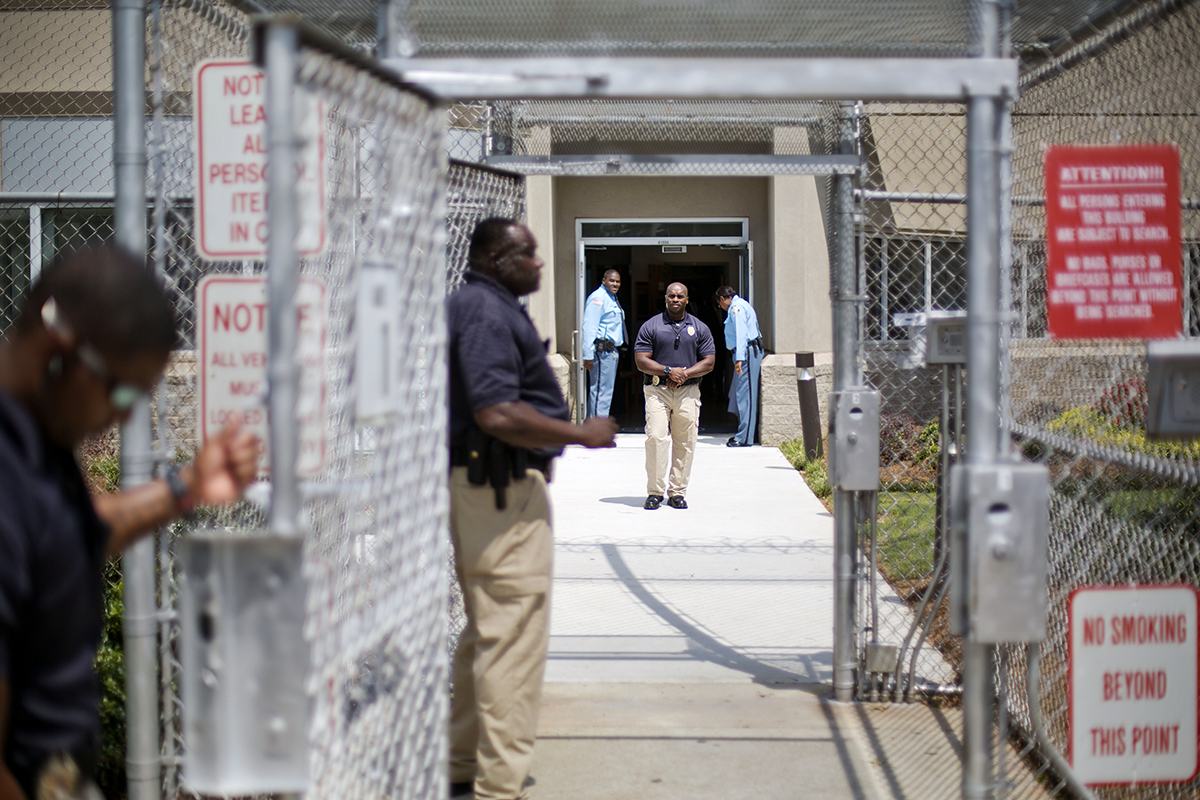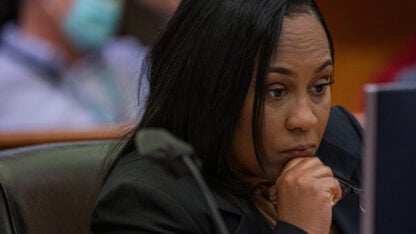Black children in Georgia’s schools make up just over 37% of students but represent well over half of all out-of-school suspensions, expulsions and assignments to alternative schools, according to a new report by the Southern Poverty Law Center.
The report, titled “Only Young Once,” proposes six policy reforms to reduce harm and rehabilitate young people in the state. They include making nonviolent offenses non-jailable and ending the use of zero-tolerance policies that can lead students to be suspended for minor infractions, like vaping.
Delvin Davis, senior policy analyst at SPLC and author of the report, said incarcerating a child also comes with a big price tag.
“Once the kid is incarcerated, it’s not just the kid that’s impacted, but it’s the parents, it’s the siblings, it’s everybody in that kid’s community as well,” Davis said.
According to the report, Georgia spends $217,000 annually to incarcerate a child in its system — or over eight times the cost of incarcerating an adult in state prisons. It’s also more than triple the cost of a full year attending the University of Georgia, Georgia Tech and K-12 public schools combined.
“I think that’s brought from a lot of the history that Georgia has going back to the mid-’90s,” Davis said. “Governor Miller, in one of his state of the [state] addresses, he brought a bill sponsoring more incarceration of youth to kind of curb what he was seeing, which was a spike in youth crime.”
Davis is referring to former Gov. Zell Miller’s 1995 State of the State Address, which he delivered after the state passed a law that would prosecute 13-to-17-year-olds in adult court.
“Juvenile offenders … have been increasing rapidly both in numbers and in the seriousness of the crimes they commit, and we’re in the midst of a most massive effort to respond, respond in an unprecedented manner in this state’s history,” Miller said in his speech.
The report states that while Miller’s successor, former Gov. Nathan Deal, led an eight-year criminal justice overhaul that steered more nonviolent offenders from prisons to treatment centers and youth crime decreased by 80% between 2000 and 2020, the law has remained in place.
Current Gov. Brian Kemp has also pushed for more tough-on-crime laws.
As of November, 44 juveniles were sentenced as adults. According to the Georgia Department of Corrections, around 86% were Black, and nearly all will be on probation once they’re released from prison.
According to the Georgia Department of Juvenile Justice, there are 19 regional youth detention centers and six youth development campuses throughout Georgia, with capacities ranging from 30 to 200 beds.
Earlier this year, U.S. Sen. Jon Ossoff, who chairs the Senate Human Rights Subcommittee, launched a federal investigation into abuse that has allegedly become rampant across these facilities.
Georgia’s Department of Juvenile Justice did not respond to several requests for comment.









